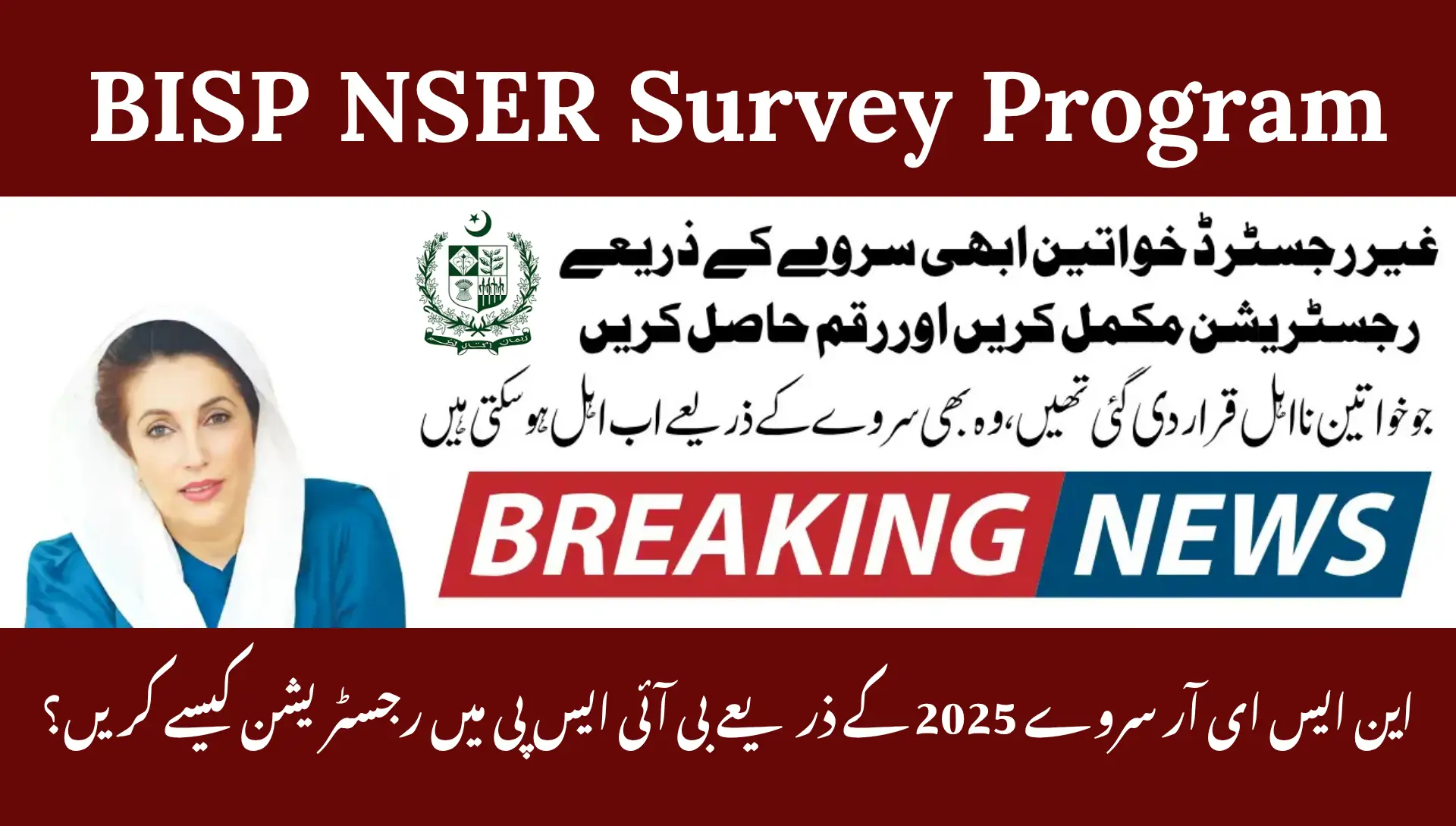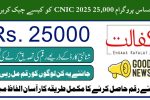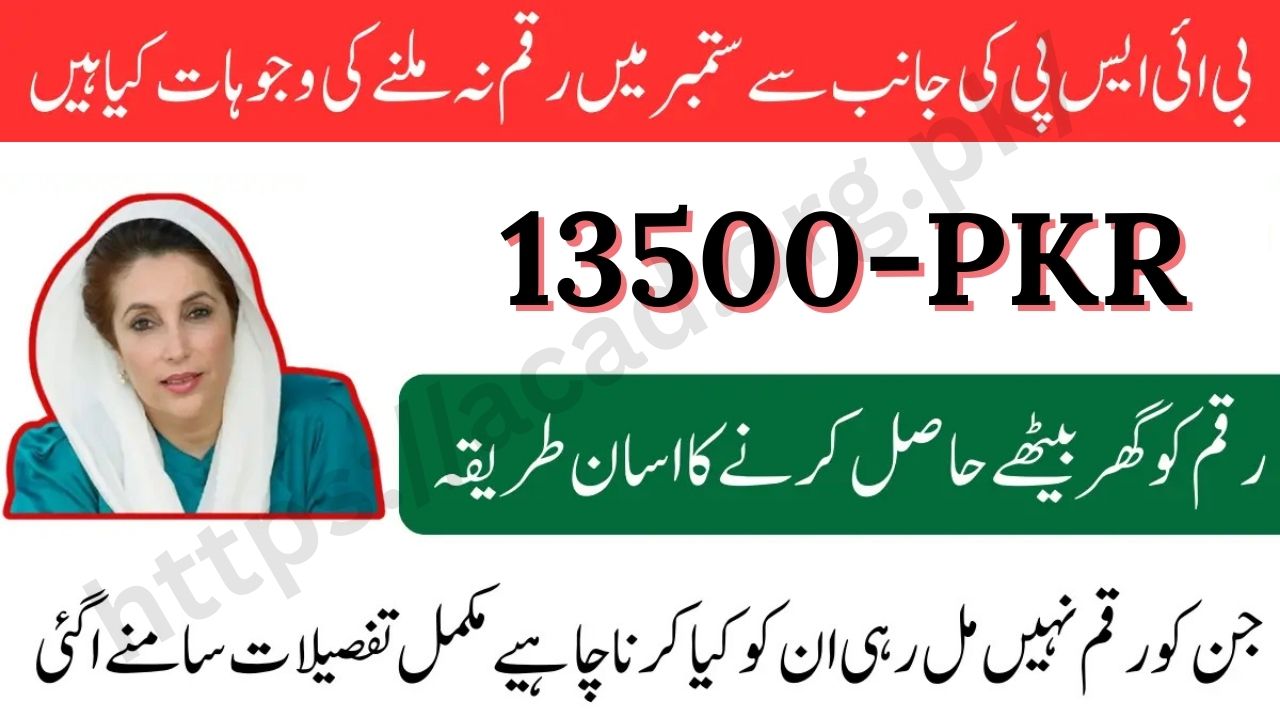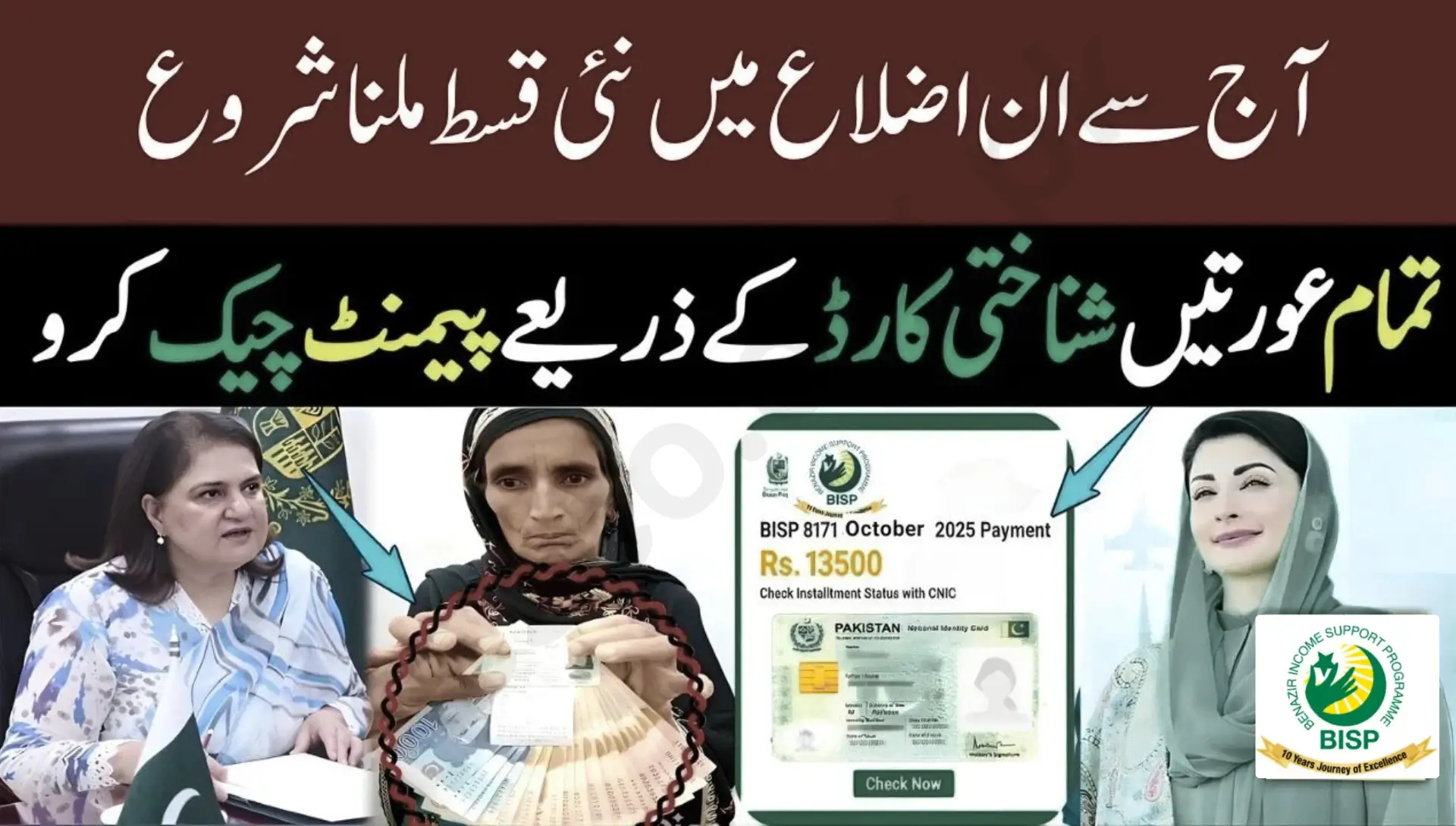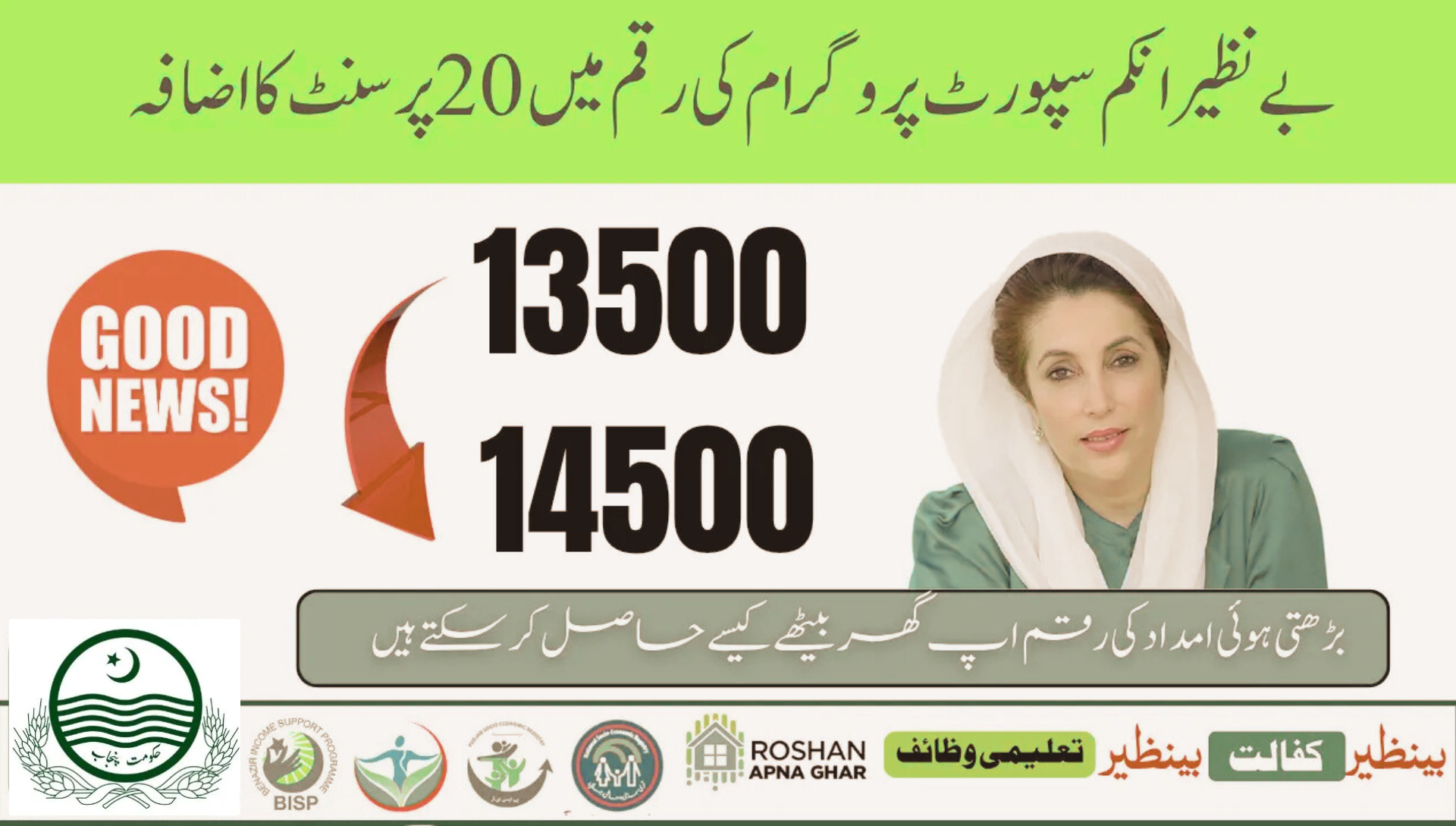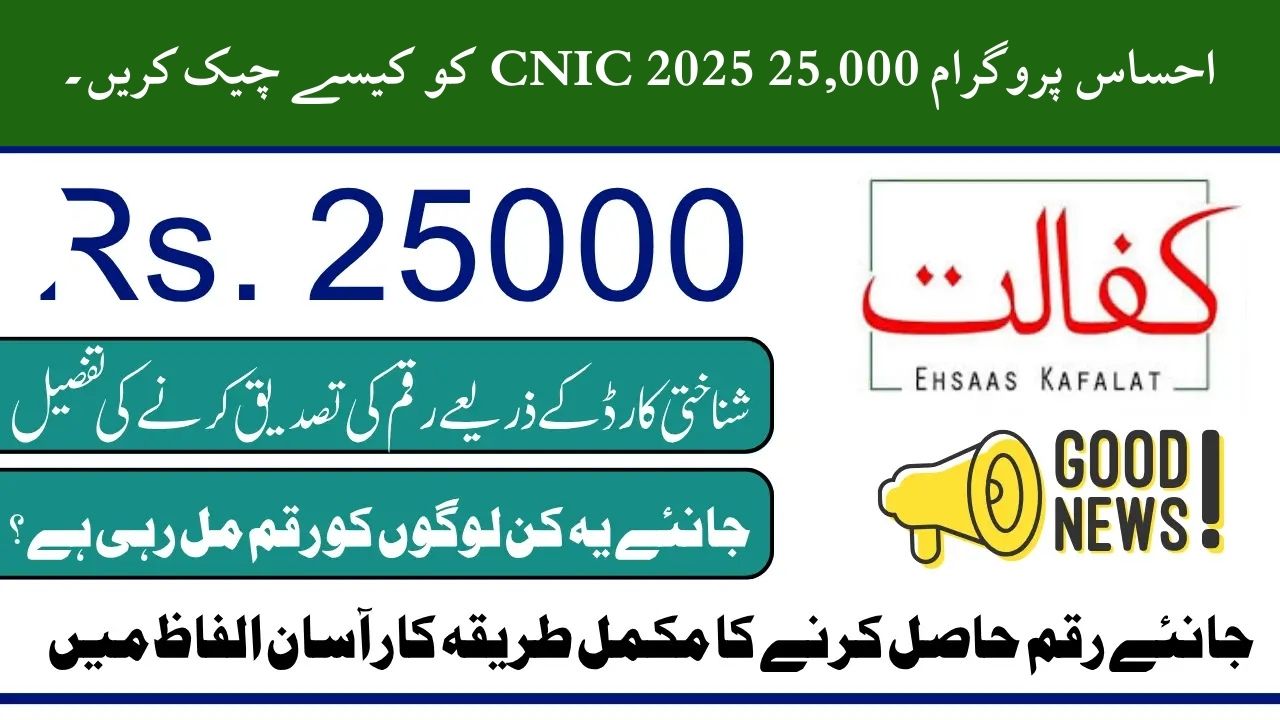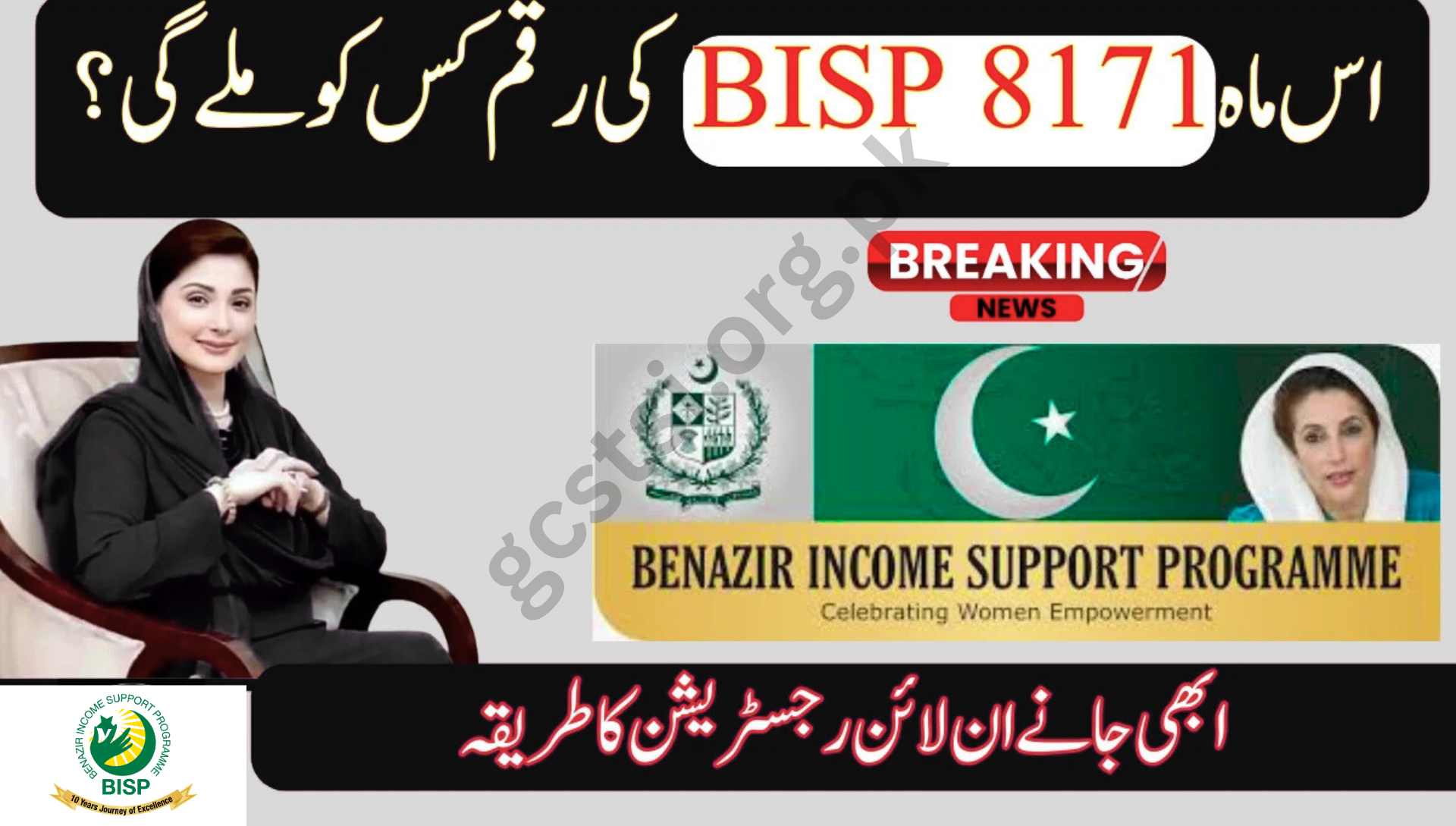BISP NSER Survey Program 2025: Complete Registration and Eligibility Guide for Beneficiaries. The BISP NSER Survey Program 2025 is Pakistan’s latest effort to ensure that financial assistance reaches only the most deserving families under the Benazir Income Support Programme (BISP). This guide explains how to register, update data, and confirm eligibility to continue receiving the Rs. 13,500 quarterly payment through transparent verification.
If you’re wondering “How can I register for the BISP NSER 2025 survey?” or “Who is eligible?” this article covers everything you need to know.
What is the BISP NSER Survey 2025?
The National Socio-Economic Registry (NSER) is a national database maintained by BISP that collects detailed household information to identify low-income families eligible for government support.
In 2025, the government has digitally upgraded the NSER process to make registration faster, paperless, and more reliable. The updated survey includes data on income, housing, family size, education, and health to calculate each household’s Poverty Means Test (PMT) score.
Purpose of the NSER Survey 2025:
- To ensure transparency in financial aid distribution.
- To collect accurate and up-to-date household data.
- To include newly eligible families and verify existing beneficiaries.
- To identify families affected by unemployment or natural disasters.
Why the NSER Survey 2025 is Important for All Beneficiaries
Whether you’re a new applicant or an existing BISP beneficiary, the NSER Survey 2025 is essential. It ensures that every family’s data remains updated and valid for continuous support.
| Category | Action Required | Benefit |
|---|---|---|
| New Beneficiaries | Register for the first time at BISP Tehsil Office | Start receiving Rs. 13,500 payments |
| Existing Beneficiaries | Update income, address, or family data | Continue receiving payments without delay |
| Rejected Applicants | Reapply with complete documents | Get reconsidered for financial aid |
| Disaster-Affected Families | Provide updated records | Qualify for special relief programs |
Updating data keeps your household active in the Benazir Kafalat Program and prevents disqualification due to outdated or missing information.
Who Needs to Register or Update Their Data?
Not every household must reapply, but certain families must complete verification to remain eligible for BISP payments.
You should register or update your NSER data if:
- Your family was previously rejected due to incomplete or outdated data.
- You’ve experienced income loss, disability, or unemployment.
- You live in flood-affected or disaster-hit areas.
- You received an SMS from 8171 asking for re-verification.
- You’ve had a new child or dependent added to your household.
Completing this update ensures uninterrupted financial aid from BISP.
Required Documents for BISP NSER Registration 2025
Before visiting your nearest Tehsil office, prepare all required documents to avoid delays or rejection.
| Required Document | Purpose |
|---|---|
| CNIC of household head | Proof of identity |
| CNICs of all adults | Verification of family members |
| B-Form / Birth Certificates | For all children under 18 |
| Proof of residence (utility bill/rent slip) | Address verification |
| Mobile number (registered under applicant’s name) | For 8171 updates |
| Bank account or mobile wallet details | For receiving payments |
Tip: Always bring original documents for verification. Photocopies alone are not accepted.
Step-by-Step Registration Process for NSER Survey 2025
Follow these steps carefully to register or update your household data for the Benazir Kafalat Program 2025:
- Visit your nearest BISP Tehsil Office.
Find your local center using the official BISP website. - Provide all required documents.
Ensure CNICs and child B-Forms are valid and updated. - Fill in household details.
Include data on family members, income, housing, and education. - Verify and submit your form.
Review details before submission to avoid errors. - Receive confirmation.
Once entered into the NSER system, you’ll get an acknowledgment slip. - Check your PMT score and eligibility via the 8171 SMS service.
Understanding the Poverty Means Test (PMT) Score
The PMT Score determines whether your family qualifies for BISP support. It is calculated using data collected in the NSER survey.
Key Factors That Affect PMT Score:
- Monthly income and household expenses.
- Number of dependents in the family.
- Level of education of family members.
- Type and condition of housing.
- Health issues or disabilities.
A lower PMT score indicates greater financial need, increasing the chances of approval under the BISP Kafalat Program.
Example Table:
| PMT Score Range | Eligibility Status |
|---|---|
| 0–20 | Highly eligible – automatically approved |
| 21–30 | Eligible – subject to verification |
| 31–40 | Borderline – may need re-survey |
| Above 40 | Not eligible for BISP assistance |
How to Check Your BISP Registration & Eligibility Status
After submitting your information, you can easily check your registration or eligibility through two convenient methods:
Method 1: SMS Service
Send your CNIC number (without dashes) to 8171.
You will receive a message confirming your eligibility or current status.
Method 2: Online Portal
- Visit the 8171 BISP Portal.
- Enter your CNIC number and the CAPTCHA code.
- Click “Check Eligibility”.
- Your household status and payment details will appear on screen.
Both methods operate 24/7, allowing families to check anytime without visiting offices.
Why Updating Data Is Crucial in 2025
Keeping your data updated ensures that your payments continue smoothly and your eligibility remains active.
Outdated or incomplete information can lead to:
- Payment delays or account suspension
- Removal from the BISP program
- Rejection of future applications
Families who regularly update their NSER data benefit from:
- On-time payments
- Priority in special schemes (e.g., flood relief)
- Access to new government welfare programs
Common Reasons for Disqualification
To avoid being removed from the program, keep these factors in mind:
- Submitting false or incomplete data.
- Earning above the eligibility income threshold.
- Owning luxury items or property beyond set limits.
- Not updating household data after changes.
- Multiple family members applying from the same address.
Always maintain transparency in your registration to prevent issues.
Benefits of Completing the BISP NSER Survey 2025
The updated NSER system provides multiple benefits for Pakistani families:
- Ensures transparency and fairness in fund distribution.
- Simplifies registration with digital verification.
- Reduces fraud and duplication through centralized data.
- Improves accessibility for rural and remote areas.
- Allows beneficiaries to track payments via 8171 and BISP portal.
The NSER 2025 is not just a registration process it’s a foundation for a digitally transparent welfare system that uplifts the most vulnerable.
FAQs
Q1: What is the NSER Survey 2025 in Pakistan?
The National Socio-Economic Registry (NSER) is a government initiative by BISP to collect household data to identify eligible families for financial assistance.
Q2: How can I register for the BISP NSER Survey 2025?
Visit your nearest BISP Tehsil Office with CNICs, B-Forms, and proof of residence. Submit all details, and check eligibility via SMS to 8171.
Q3: What is the BISP quarterly payment amount in 2025?
Eligible families receive Rs. 13,500 every quarter under the Benazir Kafalat Program.
Q4: What should I do if I received an SMS from 8171 for re-verification?
It means your household must update information at your nearest Tehsil Office to continue receiving payments.
Q5: How is the PMT score calculated?
It’s based on income, expenses, dependents, education, housing, and health — lower scores indicate greater financial need.
Conclusion
The BISP NSER Survey Program 2025 is a crucial initiative ensuring that every deserving Pakistani family continues to receive financial support transparently and fairly.
By completing your registration or updating your information, you secure uninterrupted access to Rs. 13,500 quarterly aid and stay eligible for future welfare programs.

